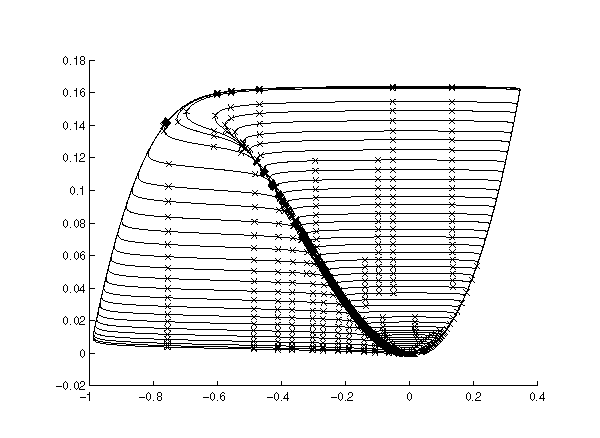Here is some of the software developed in my research and that of my students has been distributed publicly. The usual caveats apply - use at your own risk and expect that there may be difficulties in making the software work properly on your system. You have an obligation to acknowledge use of the software in your research.
DsTool
DsTool is a computer program for the interactive investigation of dynamical systems on computers using unix or linux and the X window system. The aims of the program are described in an article entitled dstool: Computer Assisted Exploration of Dynamical Systems (Notices of the American Mathemtical Society, 39, 303--309, 1992). Originally written at Cornell by Mark Myers, Rick Wicklin and Patrick Worfolk, it was improved and modified by contributions from Allen Back and the staff of the former Geometry Center at the University of Minneapolis. Three versions of the program were written: Versions 1, Version 2 and Version tk. Versions 1 and 2 used the xview toolkit for the user interface which has fallen into disuse. Version tk has a tcl/tk interface. Download dstool_tk and its user manual here. There has been little development of the programs since 1997. Instead, recent efforts of Rob Clewley, Erik Sherwood and Drew Lamar have been directed at the development of PyDSTool PyDSTool Wiki, a python program that incorporates the functionality of DsTool and much more. Comments about the program or contributions to either program can be sent to John Guckenheimer at jmg16@cornell.edu.
Periodic Orbit Solver with Matlab and ADOLC
This software implements a multiple shooting algorithm for computing periodic orbits that uses automatic differentiation. The method achieves accuracy comparable to the floating point round-off of IEEE-754 double precision arithmetic. The algorithm utilizes three strategies that contribute to its accuracy:
- Automatic differentiation is employed to calculate high order derivatives of a vector field and its trajectories.
- The methods emphasize compact parametrizations of function spaces that include high order approximations to the periodic orbits.
- A posteriori error estimates of the accuracy of numerically computed periodic orbits are used for mesh adaptation.
